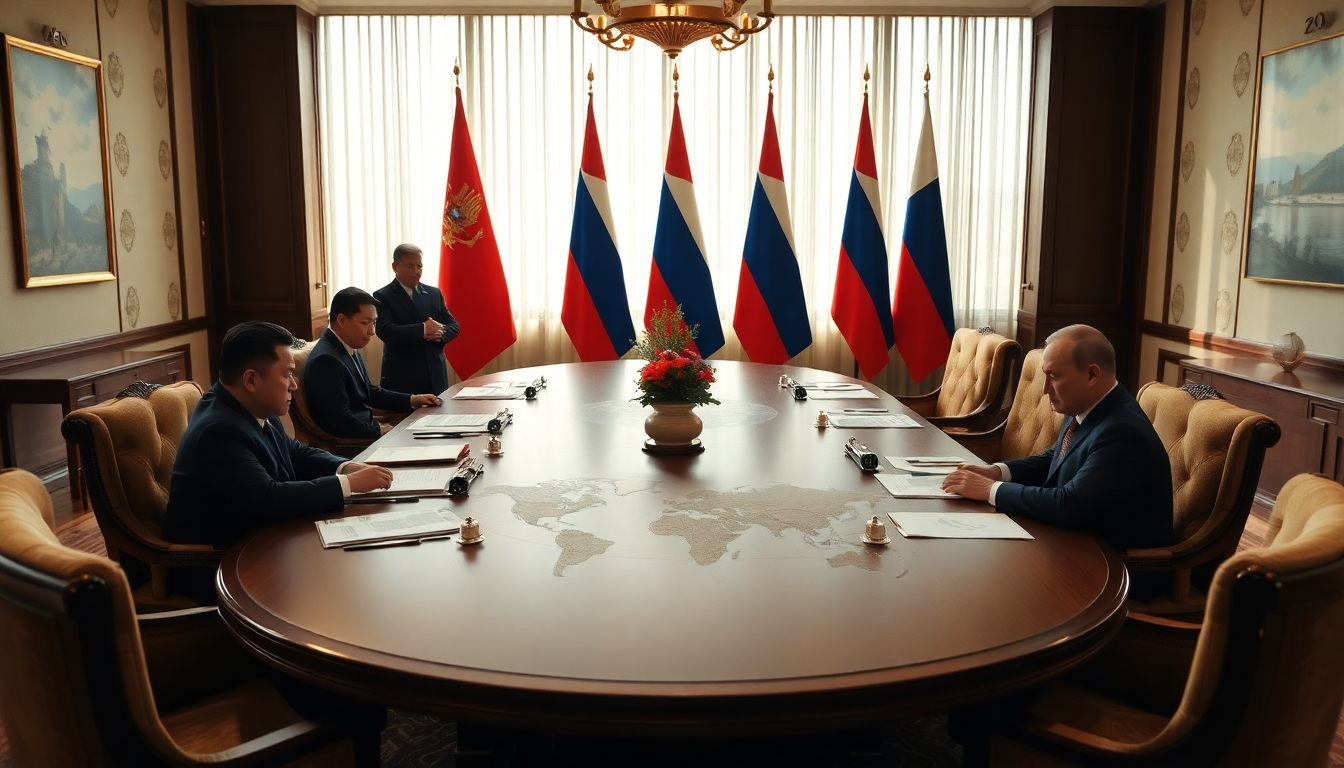Table of Contents
In the intricate world of international relations, the recent meeting between North Korean leader Kim Jong Un and Russian President Vladimir Putin in Beijing has sparked quite a conversation. With global tensions on the rise—especially as the U.S. has deployed warships near Venezuela—the growing partnership between these two nations is hard to ignore.
What does their interaction mean for the future of global stability?
The backdrop of the meeting
On a recent Wednesday, Kim and Putin attended a military parade in China, celebrating the anniversary of the end of World War II. This wasn’t just a ceremonial event; it served as a backdrop for deeper discussions about military cooperation and shared interests amid ongoing geopolitical tensions.
They convened at the Diaoyutai state guest house in Beijing, a venue rich in diplomatic significance.
During their talks, which took place after a formal reception with other global leaders, Putin praised North Korean troops for their contributions alongside Russian forces in the ongoing conflict in Ukraine.
This acknowledgment highlights the military collaboration between the two nations, while also emphasizing North Korea’s role in supporting Russia during a time of international scrutiny.
According to estimates, around 15,000 North Korean soldiers have been deployed to Russia since last year, reinforcing their military alliance.
Beyond personnel, North Korea has supplied Russia with various military assets, including ballistic missiles and artillery. These developments could potentially shift the balance of power in the region. Isn’t it fascinating how alliances can shape global dynamics?
Implications of the alliance
Kim Jong Un’s comments during the meeting reflect a commitment to deepen ties with Russia, signaling that their cooperation has ramped up since their strategic partnership was established last June. While he didn’t directly address the Russia-Ukraine war, he expressed a readiness to assist Russia in whatever capacity needed, framing this as a fraternal duty.
This not only strengthens the personal connection between the two leaders but also hints at a deeper alliance that could challenge U.S. interests in the region.
Moreover, the importance of this meeting shouldn’t be underestimated. It marks Kim’s first visit to Beijing since 2019, shining a light on a renewed focus on diplomatic relations with both China and Russia. This trilateral dynamic could have serious implications for regional security, especially considering South Korea’s recent push for cooperative measures to counter North Korea’s advancing nuclear and missile capabilities.
The geopolitical landscape is changing rapidly, and the consequences of these meetings extend beyond mere diplomacy. With the U.S. and other nations responding to growing threats, the alignment of North Korea and Russia poses a significant challenge that needs careful monitoring and strategic assessment. Are we prepared for the shifts this could bring?
Future outlook and considerations
As we look ahead, the partnership between North Korea and Russia is likely to continue evolving, influenced by ongoing global tensions and changing alliances. The recent interactions between these nations reflect a broader trend of countries seeking to consolidate power amidst uncertainty.
As international relations become more complex, the implications of Kim and Putin’s collaboration will demand close observation. The military, economic, and political aspects of their alliance could reshape the strategic landscape not just in Asia, but across the globe. How will other nations respond to this budding partnership?
In conclusion, the meeting between Kim Jong Un and Vladimir Putin marks a pivotal moment in understanding the geopolitical dynamics at play. With both leaders expressing a commitment to mutual support and collaboration, the potential for increased military and economic cooperation could have significant ramifications for global security and diplomatic relations. What does the future hold for this alliance, and how will it impact our world?





